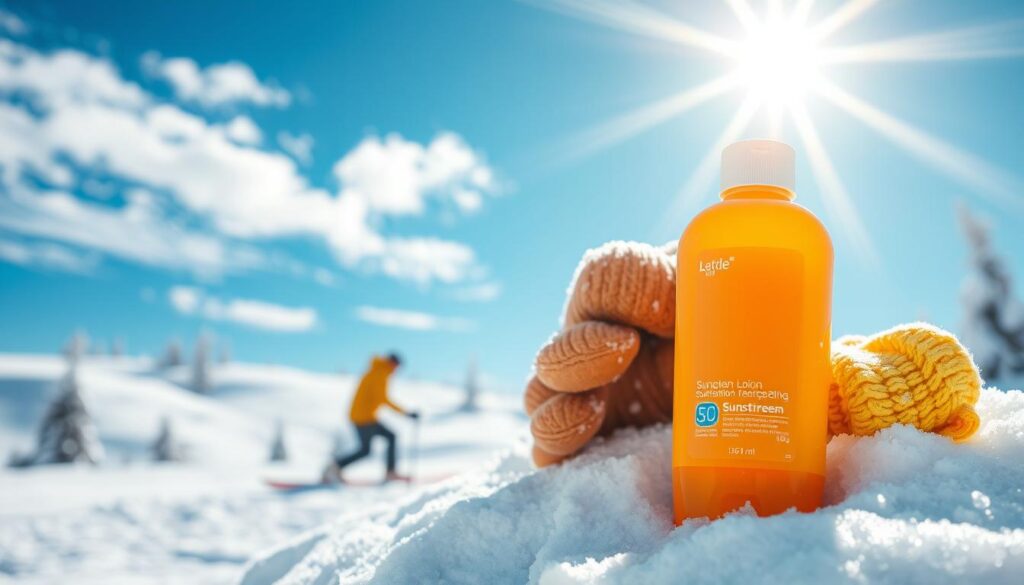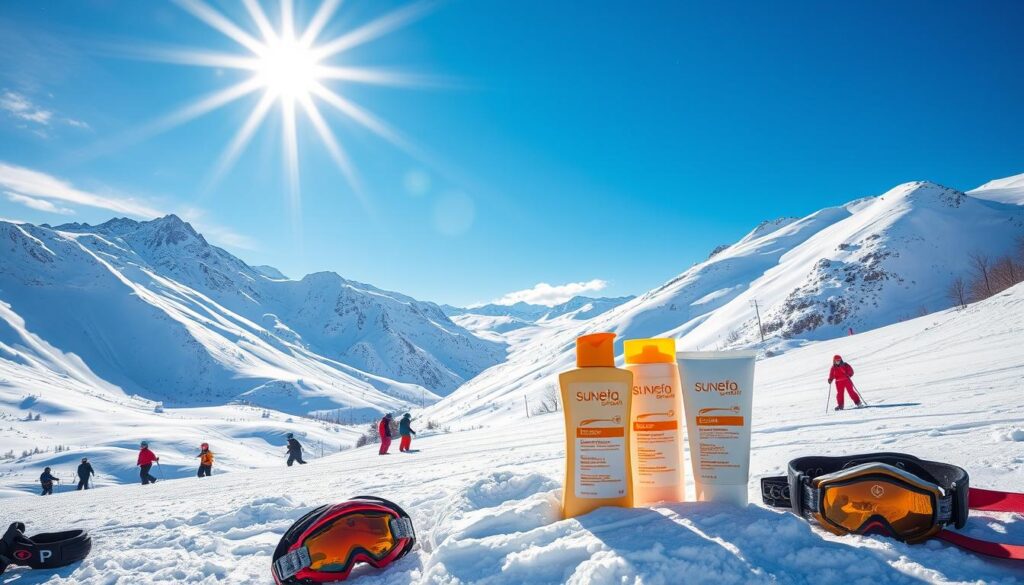Why Your Skin Needs SPF Even in Winter—Here’s Why
Up to 80% of UV rays can penetrate through clouds, meaning even on overcast days, your skin is exposed to potential harm. This startling statistic underscores the crucial importance of maintaining a consistent sun protection routine throughout the year, including the winter months. Neglecting to apply SPF can lead to premature aging, discoloration, and an increased risk of skin cancer—making year-round sun protection an essential part of any comprehensive skincare regimen.
- UV rays can penetrate clouds and cause skin damage year-round
- Applying SPF 30 or higher daily is recommended, even indoors
- Consistent sun protection is key to preventing premature aging and skin cancer
- Seasonal skincare adjustments are necessary for healthy, radiant skin
- Choosing the right winter sunscreen formula is important for optimal protection
Understanding UV Rays and Winter Sun Exposure
While the winter sun may feel less intense, the presence of UV rays remains a significant concern. These invisible rays can still penetrate the skin, leading to damage and premature aging. Understanding the types of UV radiation and how factors like snow and altitude affect exposure is crucial for maintaining proper cold weather skincare and protecting your skin during the colder months.
Types of UV Radiation in Winter Months
The sun emits two main types of UV radiation: UVA and UVB. Both can be harmful to the skin, even in the winter. UVA rays, known as the “aging” rays, can penetrate deep into the skin and contribute to wrinkles, fine lines, and age spots. UVB rays, the “burning” rays, are primarily responsible for sunburns and can also increase the risk of skin cancer.
How Snow Reflects and Intensifies UV Rays
The presence of snow can actually amplify the effects of UV rays in winter. Snow acts as a reflective surface, bouncing the sun’s rays back onto the skin and increasing overall exposure. This can lead to a higher risk of sunburns and long-term skin damage, even on overcast days or when the sun doesn’t feel particularly strong.
Altitude Effects on UV Exposure
Another factor that can intensify UV exposure in winter is altitude. As you gain elevation, the atmosphere becomes thinner, allowing more of the sun’s harmful rays to reach the earth’s surface. This is especially relevant for those engaging in winter sports or activities at higher altitudes, where the risk of UV damage is significantly increased.
| UV Radiation Factor | Impact on Skin | Recommended SPF |
|---|---|---|
| Snow Reflection | Increased UV exposure, higher risk of sunburn and long-term skin damage | SPF 30 or higher |
| Altitude | Thinner atmosphere allows more UV rays to reach the skin, amplifying damage | SPF 30 or higher |
Recognizing the unique challenges posed by winter sun exposure is essential for maintaining healthy, youthful-looking skin throughout the colder months. By understanding the types of UV radiation and the factors that can intensify their effects, individuals can make informed decisions about their cold weather skincare routine and the sunscreen benefits in snow.
Common Misconceptions About Winter Sun Protection
Many people mistakenly believe that sun protection is unnecessary during the winter months. However, this common misconception can lead to significant skin damage. The truth is that UV rays can penetrate clouds and still reach the skin, causing accelerated aging, hyperpigmentation, and even DNA damage.
Despite the colder temperatures, winter sun exposure, especially when reflected off snow, can be just as harmful as summer sun exposure. Unprotected time outdoors, whether participating in winter sports or simply running errands, can result in sunburns and long-term skin concerns.
In fact, UVB rays are blocked by glass, but UVA rays can still penetrate windows, necessitating the use of sunscreen even when indoors during the winter months. Maintaining a comprehensive cold weather skincare routine that includes consistent sunscreen application is crucial for protecting the skin’s health and appearance throughout the year.
| Myth | Fact |
|---|---|
| Sun protection is not needed in winter | UV rays can still reach the skin, causing damage |
| Skin can’t burn in cold weather | Skin can still sunburn, especially during winter activities |
| No sun exposure means no Vitamin D production | Vitamin D can be obtained through dietary sources and supplements |
By understanding and debunking these common misconceptions about winter sun protection, individuals can take the necessary steps to safeguard their skin and maintain healthy, radiant complexions throughout the colder months.
The Importance of Sunscreen in Cold Weather
While it may seem counterintuitive, sunscreen is just as essential in the winter months as it is during the summer. The sun’s harmful UV rays don’t take a break, even when the temperatures dip. In fact, the Importance of sunscreen in cold weather is paramount, as preventing winter sun damage and maintaining cold weather skincare can have long-lasting benefits for your skin.
Year-round UV Damage Prevention
UV exposure can occur year-round, and even on cloudy days, the sun’s rays can penetrate the clouds and reach your skin. Consistent sunscreen use is crucial for preventing winter sun damage and protecting your skin from the harmful effects of UV radiation, which include premature aging, sunspots, and an increased risk of skin cancer.
Winter-Specific SPF Benefits
In the winter, the sun’s rays can bounce off reflective surfaces like snow, amplifying their intensity. Additionally, harsh winds can strip away your skin’s natural oils, leaving it vulnerable. Importance of sunscreen in cold weather lies in its ability to shield your skin from these winter-specific challenges, helping to maintain its health and youthful appearance.
Protecting Against Premature Aging
Regular sunscreen application during the winter months is essential for preventing winter sun damage and cold weather skincare. UV radiation can accelerate the aging process, leading to fine lines, wrinkles, and age spots. By incorporating SPF into your daily routine, you can help safeguard your skin and delay the signs of premature aging, even in the colder seasons.
| Sunscreen Benefits in Cold Weather | Description |
|---|---|
| UV Damage Prevention | Protects skin from harmful UV rays year-round, even on cloudy days |
| Winter-Specific Protection | Shields skin from snow glare and harsh winds that can strip natural oils |
| Premature Aging Prevention | Helps delay the signs of fine lines, wrinkles, and age spots |

Incorporating a high-quality, moisturizing sunscreen into your daily cold weather skincare routine is an essential step in maintaining the health and youthful appearance of your skin, even during the winter months.
How Winter Weather Affects Your Skin Barrier
During the winter months, the cold air and low humidity can have a damaging effect on your skin’s natural barrier. This protective layer plays a crucial role in maintaining optimal skin health, and when it’s compromised, your skin becomes more vulnerable to environmental stressors, including harmful cold weather skincare and winter sun damage.
The harsh winter climate can strip your skin of its natural oils, leading to dryness, tightness, and flakiness. This weakened skin barrier makes it harder for your skin to retain moisture and defend against preventing winter sun damage. Neglecting to properly care for your skin during this time can exacerbate these issues, leaving your complexion feeling stressed and irritated.
To combat the effects of winter weather on your skin barrier, it’s essential to incorporate targeted cold weather skincare into your routine. This includes using nourishing, hydrating products that replenish and strengthen the skin’s protective layer, such as serums, creams, and facial oils rich in ingredients like ceramides, hyaluronic acid, and antioxidants.
| Product | Key Ingredients | Benefits |
|---|---|---|
| Nourishing Skin Serum | Antioxidants, Ceramides, Amino Acids | Boosts Brightness, Smoothness, and Hydration |
| Resurfacing Serum | Glycolic Acid, Ceramides, Microalgae, Fermented Heartleaf | Gentle Exfoliation for Sensitive Skin |
| Hydrating Facial Oil | Antioxidants, Ceramides | Boosts Skin Resilience and Hydration |
By prioritizing the health of your skin barrier, you can better protect your complexion from the harsh effects of winter weather and ensure that your skin remains cold weather skincare and winter sun protection is effective.
Choosing the Right Winter Sunscreen Formula
As the winter chill sets in, your skin’s needs change, and choosing the right sunscreen formula becomes crucial. Winter sunscreens should be richer and more moisturizing to combat the drying effects of the cold, harsh weather. Look for formulas infused with hydrating ingredients like ceramides, glycerin, or hyaluronic acid to provide an extra layer of nourishment for your skin.
Different SPF Formulations for Winter Use
When it comes to winter sun protection, consider cream-based or oil-based sunscreens for added moisture and a more luxurious feel on the skin. These formulas are often better suited to withstand the elements and keep your skin shielded from the sun’s harmful rays, even in the harshest winter conditions.
Key Ingredients to Look For
- Ceramides to strengthen the skin’s natural barrier and lock in hydration
- Glycerin to draw moisture into the skin and prevent dryness
- Hyaluronic acid to plump and hydrate the skin
- Antioxidants like vitamins C and E to combat environmental stressors
Moisturizing Properties in Winter SPF
| Ingredient | Function | Benefit |
|---|---|---|
| Shea butter | Emollient | Deeply nourishes and softens the skin |
| Aloe vera | Soothing and hydrating | Calms and replenishes the skin |
| Jojoba oil | Moisturizing | Mimics the skin’s natural oils for a healthy glow |
When selecting a winter sunscreen, aim for a formula that offers broad-spectrum protection with at least SPF 30 to shield your skin from both UVA and UVB rays. By prioritizing hydration and nourishment, you can keep your skin healthy and glowing all season long.
Winter Sports and Sun Protection Needs
When engaging in outdoor winter activities like skiing or snowboarding, it’s crucial to prioritize sun protection. The combination of high altitudes and reflective snow can significantly increase your exposure to harmful ultraviolet (UV) rays, even on cloudy days.
To safeguard your skin, experts recommend using a water-resistant, broad-spectrum sunscreen with an SPF of 30 or higher. Reapply the sunscreen generously and frequently, especially after sweating or prolonged exposure to the elements. Don’t forget to protect often-missed areas like under the chin and around the ears.
| Winter Sport | Sun Protection Tips |
|---|---|
| Skiing |
|
| Snowboarding |
|
By taking the necessary precautions and prioritizing sun protection, you can enjoy your outdoor winter activities while keeping your skin healthy and safe.

Vitamin D Balance in Winter Months
As the days grow shorter and the sun’s rays diminish during the winter months, maintaining a healthy balance of vitamin D can become a challenge. Vitamin D is crucial for bone health, immune function, and overall well-being, making it essential to address this seasonal shift.
Safe Sun Exposure for Vitamin D Production
While vitamin D production requires some sun exposure, it’s important to balance this with proper skin protection. Brief, safe sun exposure can be beneficial, but it’s crucial to avoid overexposure, which can lead to skin damage and an increased risk of skin cancer. The optimal duration of sun exposure varies depending on factors such as skin tone, geographic location, and time of day.
Supplements vs. Natural Sources
- During the winter months, when sun exposure is limited, consider supplementing with vitamin D to maintain optimal levels.
- Alternatively, incorporate vitamin D-rich foods into your diet, such as fatty fish, egg yolks, and fortified dairy products.
- Consult with a healthcare professional to determine the appropriate vitamin D supplementation or dietary changes for your individual needs.
By understanding the complexities of vitamin D balance during the winter months and taking proactive steps to maintain it, you can support your overall health and well-being throughout the colder seasons.
Special Considerations for Sensitive Skin in Winter
As the colder months approach, individuals with sensitive skin may face unique challenges in maintaining healthy, glowing complexions. The harsh winter elements, such as biting winds and low humidity, can significantly compromise the skin’s delicate barrier, leading to increased sensitivity, dryness, and irritation.
Cold weather skincare for sensitive skin requires a thoughtful and gentle approach. When selecting winter sun protection, it’s essential to choose fragrance-free sunscreens formulated specifically for sensitive skin types. Mineral-based options containing zinc oxide or titanium dioxide are often the gentlest and most effective choices, as they provide physical sun blocking without potentially irritating chemical filters.
Before incorporating any new winter sun protection products into your routine, it’s crucial to perform a patch test to ensure compatibility with your skin. This proactive step can help prevent adverse reactions and ensure your preventing winter sun damage regimen is tailored to your individual needs.
| Ingredient to Avoid | Reason |
|---|---|
| Fragrances | Can cause irritation and sensitization |
| Alcohol | Can dry out and compromise the skin barrier |
| Harsh Exfoliants | May further irritate and damage already sensitive skin |
By carefully selecting the right cold weather skincare products and incorporating them into a gentle, consistent routine, individuals with sensitive skin can effectively protect their complexion from the harsh winter elements and maintain a healthy, radiant glow all season long.
Combining SPF with Winter Skincare Routine
As the temperatures drop and the air becomes drier, it’s crucial to adapt your skincare routine to meet the unique needs of winter. Integrating an effective sunscreen into your daily regimen is a crucial step in protecting your skin from the harsh winter elements.
Layering Products Effectively
When incorporating sunscreen into your winter skincare routine, apply it after your moisturizer but before any makeup. This layering technique ensures that the sunscreen can effectively create a protective barrier on the skin’s surface. Look for formulas that are lightweight and quickly absorb, allowing your other products to seamlessly integrate.
Morning and Evening Routines
In the morning, don’t forget to apply sunscreen to any exposed areas, such as your hands and neck, in addition to your face. During the evening, switch to a richer night cream to deeply nourish and repair the skin while you sleep. By combining SPF protection with targeted winter skincare, you can maintain healthy, radiant skin even in the coldest months.







